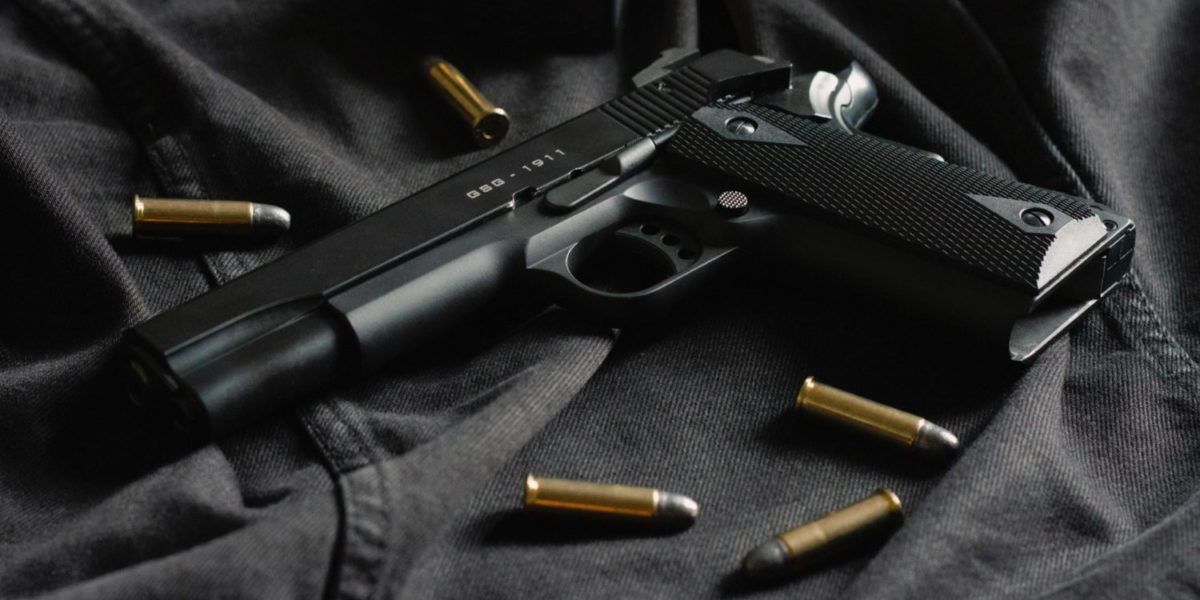Two courtroom dramas unfolded this week in the U.S., both the result of America’s gun obsession: In Florida, jurors recommended Nikolas Cruz be sentenced to life imprisonment without parole. Cruz murdered 17 students and staff at Parkland’s Marjory Stoneman Douglas High School on Valentine’s Day, 2018. Meanwhile, a Connecticut jury decided on financial penalties for conspiracy peddler Alex Jones, who was found guilty of defamation.
Jones long claimed that the December 14, 2012 massacre at Sandy Hook Elementary School was staged, and that some of the grieving parents were actually “crisis actors,” reading government-provided scripts in a false flag operation mounted to justify gun confiscation. The jury awarded eight families and one FBI agent in the suit a stunning sum of almost $1 billion. Outside these courtrooms, the cycle of gun violence continues, as Americans amass an unprecedented private arsenal estimated at close to 400 million firearms – more guns than people.
According to the Centers for Disease Control (CDC), more than 45,000 people died by gunfire in the U.S. in 2020. Over 24,000 were by suicide, while over 19,000 were homicides. More than 1,000 people were shot to death by police. These grim figures are without comparison in the world. U.S. gun deaths have become so commonplace they barely warrant a mention in the media. We, as a society, have grown accustomed to the carnage.
“We are a nation under siege,” Nina Turner, national co-chair of the Bernie Sanders 2020 presidential campaign, said on the Democracy Now! news hour last July, one day after a teenager fired on a July 4th parade in Hyde Park, Illinois, killing seven and wounding 48. “When you cannot take your family to a parade, you can’t go to the grocery store — I’m thinking about Buffalo — your babies are not safe in schools — Uvalde — and other incidents over the last past 20 years in this country, we have a problem. Part of this problem is the gun obsession in the United States of America. Unfortunately, we have too many elected officials who are bought and paid for by the NRA.”
A majority of Americans support stricter gun controls. But enacting meaningful federal gun control legislation has become virtually impossible. In June, President Biden signed the Bipartisan Safer Communities Act into law. It strengthens background checks for gun buyers under 21-years-old, provides money for school security and for mental health services. It doesn’t address the core problem, as explained on Democracy Now! by Robin Lloyd, managing director of the gun violence prevention organization Giffords, in the wake of the Uvalde, Texas school shooting last June:
“There’s definitely something specific to the United States and our lack of strong gun laws and our patchwork of gun laws that we have across different states that allow this to keep happening, in addition to the sheer number of firearms that exist in this country and how easy it is to access them.”
Giffords is named for its co-founder, former Congressmember Gabby Giffords. She survived being shot in the head on January 8, 2011 while holding a public constituent meeting in a Tucson supermarket parking lot. A gunman opened fire, killing six people, including a nine-year-old girl.
The pervasiveness of guns and gun violence in the U.S. is bleeding into Mexico. The Mexican government has just filed suit in federal court in Arizona, charging five Arizona gun dealers with engaging in arms trafficking.
“Eighty percent of the guns traced back to the U.S. are coming from shops in Arizona, which is a major corridor for most of the top cartels in Mexico, like the Sinaloa Cartel and the Cártel de Jalisco Nueva Generación,” journalist Luis Chaparro said on Democracy Now!
The United Nations Institute for Disarmament Research, in a recent report, tracks the flow of illicit weapons to armed conflicts and organized crime, leading to more violence and the erosion of governance.
Here in the United States, hundreds of millions of guns are purchased legally; too many are wielded with criminal or seditious intent. This was frighteningly demonstrated on January 6th, 2021, when thousands of President Trump’s supporters, many of them armed, stormed the U.S. Capitol, seeking to overturn Trump’s election loss to Joe Biden. Some even wanted to execute perceived enemies of Trump, including House Speaker Nancy Pelosi and Vice President Mike Pence.
Trump ally Alex Jones long championed resistance to the peaceful transfer of power in 2021. He has been subpoenaed by the House Select Committee investigating the January 6th attack on the Capitol, but has refused to cooperate.
Can democracy survive in a society awash in guns as violence-promoting charlatans like Donald Trump and Alex Jones are increasingly embraced by Republican Party elites? It is the job of us all to see that it does.
This column originally appeared on Democracy Now!



